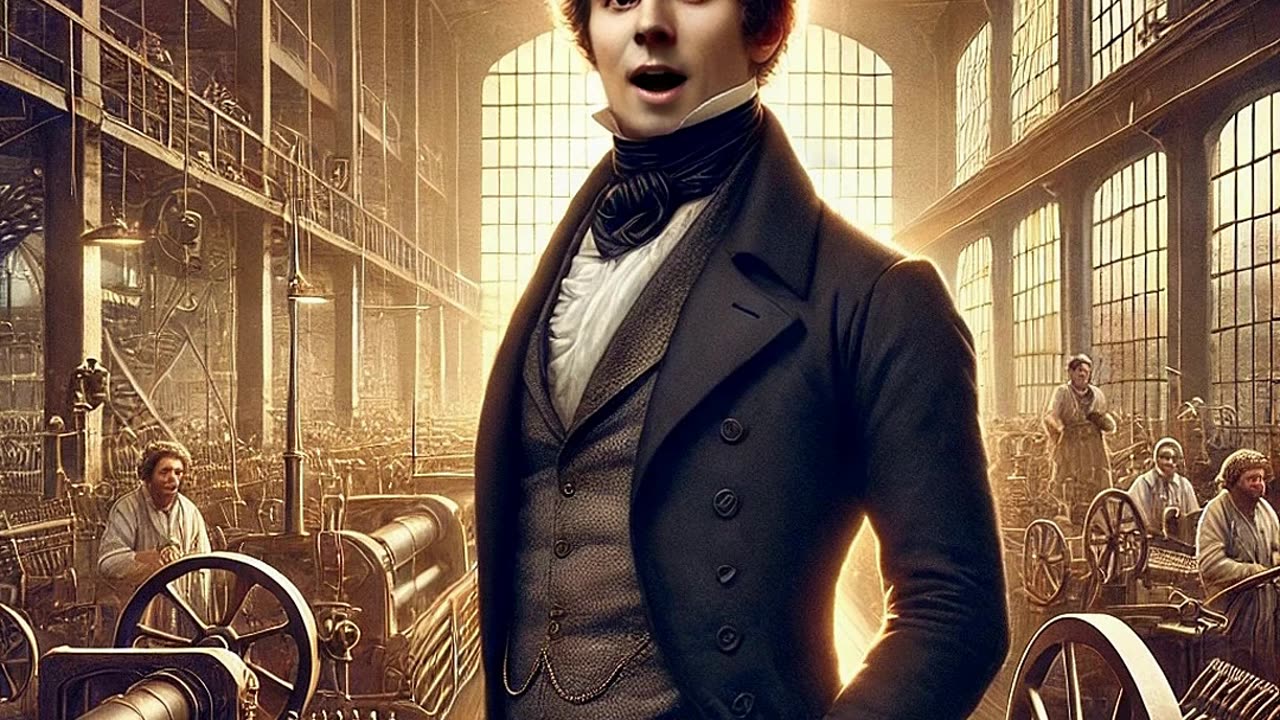Premium Only Content

Francis Cabot Lowell Tells His Story about the Creation of Texttile Industry in the United States
Presented to you by: http://www.HistoricalConquest.com
Read more on our blog at: https://www.historicalconquest.com/blog
My name is Francis Cabot Lowell, and I’d like to share my story with you. I was born in 1775 in Newburyport, Massachusetts, right as our country was fighting for independence. Growing up, I always had a mind for business and innovation, but I never imagined that I would help transform the way America worked and set the foundation for the Industrial Revolution in our young nation.
In my early years, I pursued a solid education at Harvard College and went on to become a successful merchant. Life was good, but I believed America could be better—stronger, more self-reliant. During the War of 1812, when British imports were cut off, I realized how much we relied on European goods, especially textiles. That’s when I started to dream of creating a textile industry in America, one that would rival Britain’s.
In 1810, I traveled to England and Scotland, where I studied their textile mills. The British guarded their industrial secrets closely, but I observed and took careful mental notes of how their machines worked, particularly the power loom—a machine that wove thread into fabric much faster than could be done by hand. When I returned to Massachusetts, I teamed up with a brilliant mechanic named Paul Moody, and together we recreated and improved upon the British power loom. This was the beginning of something revolutionary.
In 1814, I helped establish the Boston Manufacturing Company in Waltham, Massachusetts. It wasn’t just a factory—it was the first fully integrated textile mill in America, meaning we handled everything under one roof, from spinning cotton into thread to weaving it into finished fabric. This system, known as the "Waltham-Lowell System," became the blueprint for modern manufacturing in the United States. It was efficient, and it allowed America to become less dependent on foreign goods.
But my vision wasn’t just about machines and profits. I believed that industry should uplift people, not exploit them. That’s why we hired young women, often from local farms, to work in the mills. We offered them decent wages, clean housing, and opportunities for education. I wanted to prove that industrial work could be dignified and respectable. These women, known as the "Lowell Mill Girls," became a symbol of American ingenuity and progress.
Sadly, my time was short. I passed away in 1817, but I’m proud to say that my ideas lived on. The city of Lowell, Massachusetts, named in my honor, became the center of America’s textile industry, and my vision for combining innovation with opportunity helped shape the nation’s economy. My story isn’t just about building machines—it’s about dreaming big, working hard, and believing in the potential of people and a growing nation. I hope it inspires you to think about the ways you can innovate and make a difference in the world around you.
Visit us at: https://www.historicalconquest.com/marketplace
#historicalconquest #history #historical #SecondIndependence #Warof1812 #AfricanAmerican #BlackAmerican #Freedom #Slavery #Liberty #Independence #Justice #Freedom #colonialera #colonialamerica #constitution #usconstitution #unitedstates #unitedstatesofamerica #NewOrleans #russia
-
 0:59
0:59
The Historical Conquest Channel
16 days agoIsaac Hull Tells His Story as Commodore of the USS Constitution During the War of 1812
201 -
 8:22
8:22
Russell Brand
8 hours agoThey want this to happen
127K322 -
 2:06:43
2:06:43
Jewels Jones Live ®
1 day ago2025 STARTS WITH A BANG! | A Political Rendezvous - Ep. 104
70.4K25 -
 4:20:41
4:20:41
Viss
8 hours ago🔴LIVE - PUBG Duo Dominance Viss w/ Spartakus
57.5K6 -
 10:15:14
10:15:14
MDGgamin
11 hours ago🔴LIVE-Escape From Tarkov - 1st Saturday of 2025!!!! - #RumbleTakeover
49.4K2 -
 3:54:19
3:54:19
SpartakusLIVE
7 hours agoPUBG Duos w/ Viss || Tactical Strategy & HARDCORE Gameplay
62.5K1 -
 5:54:54
5:54:54
FRENCHY4185
8 hours agoFRENCHY'S BIRTHDAY BASH !!! THE BIG 40 !!!
73.5K3 -
 1:23:33
1:23:33
Michael Franzese
16 hours agoThings to look forward to in 2025
91.5K46 -
 3:23:02
3:23:02
I_Came_With_Fire_Podcast
17 hours agoDefeating VICTIMHOOD: Advocacy, Resiliency, and Overcoming Abuse
93.4K19 -
 2:00:56
2:00:56
Game On!
1 day ago $10.29 earnedNFL Experts debate if Joe Burrow will make HISTORY in Week 18!
115K16